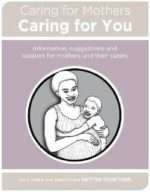Infant Mental Health
My baby – mind and soul
Newborns are sensitive to what goes on around them – to the voices, sounds and smells of their parents and caregivers. This helps them decide what they think and how they feel.
If they could talk:
“I can hear what is going on around me, and i recognize my mother’s voice – i have known it for 9 months when i was inside her”
“I know my mother’s scent and what her milk tastes like.”
“I like to be held close by my mother or father. It makes me feel safe and secure.”
“I can see your face when i am held in your arms. I can read your feelings.”
How the outside comes in
Babies are able to notice their caregivers’ mood and feelings. When they are not tired or hungry, young babies most like looking at their caregivers’ faces and ‘talking’ to them. This helps their brains develop.
When a caregiver is not feeling well or happy, she may not talk to the baby in the way she would normally do and the baby loses out on this important face-to-face contact.
Babies are also deeply affected by the presence of violence in the home.
Loud and sudden noises and frightened faces cause insecurity and fear.
Should the baby be left to cry?
Being left to cry alone stresses the baby and affects the development of the brain. In this situation the baby feels helpless, vulnerable and abandoned. They may learn that they cannot trust that someone will care for them. This can damage their development.
Caring is in your hands and you can reach out for help
Looking after your baby’s emotional health also means looking after yourself. Being a mother can be very difficult, and at times, it is normal to need support.
Here’s how to know when to reach out for help:
• When you are not enjoying being with your baby.
• When your baby is crying all the time and you are feeling desperate.
• When you feel you are not ‘connecting’ or getting along with your baby.
• When you feel like getting very angry with your baby.
• If you feel that you cannot calm your baby.
• If you feel that you cannot cope with the responsibility of having a baby.
• When you feel that you don’t want to be a mom anymore.
What you can do for yourself?
• Breathe slowly 5 -10 times. Pause between each breath. Notice the sensations of the breath as it enters and leaves your body. Repeat this when you have a moment; boiling the kettle, walking down the road.
• Tell yourself that you are a good mother. Know that being a mother is very hard and that you are not alone.
• Connect with moms who have babies of the same age. Others may be feeling lonely too. WhatsApp or BBM, even during the night, can make you feel linked together.
• Ask your partner, relative, neighbour or friend to look after the baby for a while and give you regular time out. Then do something just for you, like taking a long bath or an afternoon sleep.
• Speak to someone who will listen to you and that you can trust. This can be a friend or a professional person. It might take a while to find the right person for you – don’t give up.
• Here are people to call on when you need support:
The Parent Centre
www.theparentcentre.org.za
For support for all parents and caregivers
021 762 0116
The UCT Parent-Infant Mental Health Service
For psychological/psychiatric assessment of children 0-3 years
021 685 4103
What can you do for the baby?
Here are some simple suggestions on how to calm your baby:
• Get to know your baby – by watching him or her you will, in time, be able to understand different types of cries or behavior as meaning they are either hungry, tired, uncomfortable, bored or lonely.
• Young babies like being close to their mother or caregivers; being held rocked, stroked or carried may be soothing.
• Sing or talk to your baby – he or she knows your voice and prefers it to all other voices.
• Babies also like to be massaged – the firm stroking of the skin is calming.
• Some babies find a bath very calming.
• Do not fear that you are spoiling your baby – spoiling is only possible later, when the baby has grown into a toddler. During the first year of life, the baby’s needs are real and should be met.
• There is no such thing as “too much love” or “too much attention”.


